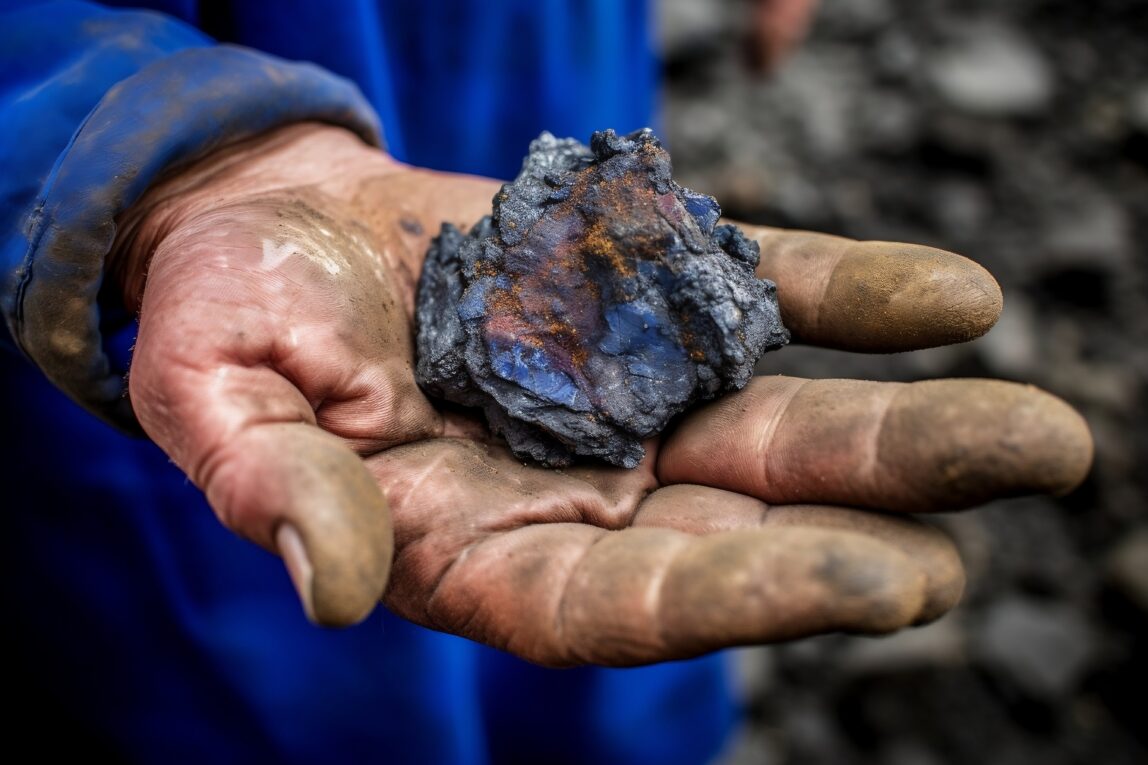Cobalt is a necessary supplement for healthy development. It is also the name for a striking blue colour! Cobalt is an element that is classed as a metal. It is a required component of Vitamin B12. It has also recently been identified as an integral part of blood cell production.
Cobalt the Element
Cobalt is a naturally occurring element found in several rock deposits worldwide. Cobalt ore deposits have been discovered in Zaire, Morocco and Canada. Cobalt is a metal element with the chemical symbol Co and the atomic number 27 in the Periodic Table of Elements.
In its most natural form, Cobalt is a brittle grey metal that has magnetic abilities. When Cobalt is combined with salt it produces a beautiful, deep blue colored mineral for which that shade of blue was named.
Cobalt in the Body
Cobalt is very useful in the body because it is a necessary component of vitamin B12 In fact, Vitamin B12 is called Cobalamin. The body can’t produce Vitamin B-12 itself though, so Cobalt supplements alone won’t have any effect on Vitamin B-12 levels as the Cobalt in Vitamin B12 is already integrated into the vitamin when it enters the body in this way. Vitamin B12 needs to be acquired from food or supplements.
Cobalt is also thought to aid in repair of myelin, which surrounds and protects nerve cells. It also helps in the formation of haemoglobin, which is the iron-containing metalloprotein found in red blood cells, which is used to transport oxygen around the body). Cobalt also helps regulate and stimulate the production of some co-enzymes.
Vitamin B-12, with the assistance of Cobalt, is part of DNA synthesis, which is responsible for all genetic expression.
In order for the vitamin B-12 and Cobalt to be ingested and used properly by the body, it must travel to the stomach where hydrochloric acid removes the vitamin B and Cobalt from the food source, then it combines with intrinsic factor, which is a glycoprotein produced in the stomach. From here, vitamin B-12 and Cobalt are absorbed as nutrients and are in the form most useful to the body.
Cobalt-60
One important use of Cobalt is to produce Cobalt-60, which is a man-made isotope of Cobalt (an isotope means it is a Cobalt atom with a different number of neutrons in the nucleus of the atom).
Cobalt-60 is used to produce gamma rays, that can assist in the sterilization of many foods and medicine products. Gamma rays have high levels of radiation that are able to sterilize without damaging the food or medicine. This radioactive Cobalt-60 also treats some kinds of cancers.
How to Take Cobalt
Consuming foods that are high in vitamin B-12 provides the Cobalt required for its purposes as a vitamin component. Foods that are naturally high in vitamin B-12 are; beef liver and other organ meat, clams, fish, poultry, eggs, milk, and other dairy type foods. Fortified foods such as cereal also commonly contain vitamin B-12.
Cobalt is also available as tablets, often in a multi-vitamin and mineral supplement. Cobalt and vitamin B-12 are also available as an injection, which is usually for people found to be severely vitamin B-12 deficient. A nasal gel is available for those who wish to administer it through their nose.
Cobalt Deficiency
A deficiency in Cobalt/Vitamin B12 can cause shortness of breath and low thyroid function. However, most Americans do not have a vitamin B-12 deficiency, and their diet is usually a sufficient source of Cobalt, so vitamins and supplements are usually unnecessary. Due to vitamin B-12 and Cobalt being primarily found in meat, vegetarians are more likely to exhibit Cobalt and/or vitamin B-12 deficiency than carnivores.
Recommended Daily Allowance of Cobalt The RDA for cobalt is the same regardless of gender or age. 10-20 mg (milligram) daily is the recommended amount. The average estimated intake of cobalt worldwide is between 5-40 mg, depending on location and diet.
Shopping
| Visit the new SHOPPING page for a wide selection of great products! |
Always take care when taking herbs and Read Our Disclaimer.
Cobalt Notes / Side Effects
There are no known dangers of taking too much vitamin B-12. However, too much Cobalt in the industrial form has lead to cardiomyopathy (Neilsen FH: Ultratrace minerals. Shils ME, Olson, JA, Shike, M., eds. )Modern nutrition in health and disease. Philadelphia: Lea and Febiger, 1994).
Cobalt toxicity, or having too much Cobalt in your system can lead to panic attacks, anxiety, shortness of breath, asthma, the production of too many red blood cells, neurological problems, infertility and skin rashes.


Leave a Reply